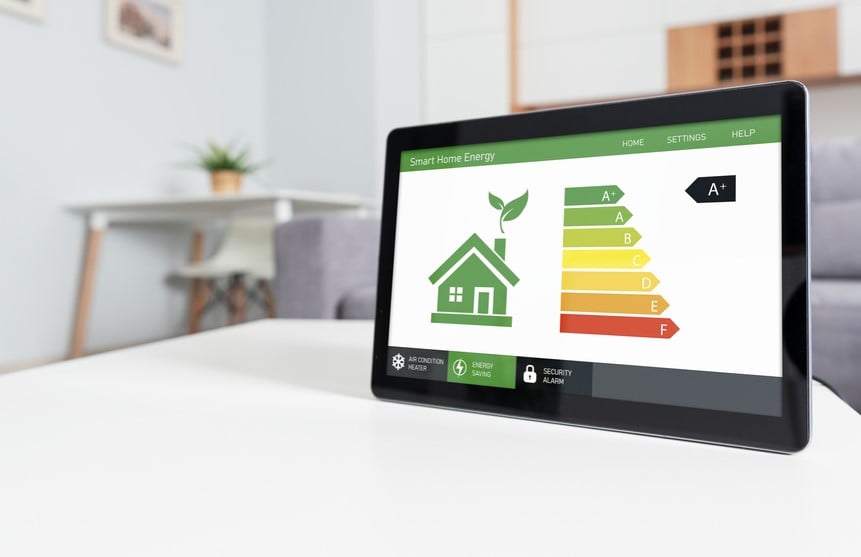
0:01 AM, 7th October 2024, About 4 months ago 3
Text Size
The scale of the challenge to improve the energy efficiency of private rented sector (PRS) homes is laid bare as landlords face a £23.4 billion bill, Rightmove reveals.
It estimates that 2.9 million landlord properties need to be upgraded to reach an EPC C rating by 2030.
The research follows last week’s revelation by Zero Deposit that the cost of upgrading PRS homes would be £21.45 billion.
The government’s proposal is to introduce a minimum EPC requirement for all rental properties by 2030 but the report makes clear that significant investment will be needed.
Rightmove warns that without financial support, the move could lead to fewer homes to rent as landlords sell up rather than spend money meeting the EPC requirement.
Tim Bannister, Rightmove’s director of property science, said: “It’s clear from our analysis that more needs to be done to help the mass market transition to greener homes, especially those living in homes worth under £400,000.
“In the rental market, through discussions with agents and our research, we know landlords want to provide comfortable, energy-efficient homes, but green upgrades can be costly.
“For landlords of lower-value properties, the financial returns may not always justify the investment.”
He added: “Now that the government has confirmed there will be a consultation on raising the minimum energy efficiency standards in rental homes, we look forward to seeing much needed clarity, and ideally support, for landlords, which in turn should benefit tenants over the medium to long term.”
The report also found that higher-value landlords are making green upgrades at a much faster pace than those with cheaper properties.
This is due in part to the fact that these properties are more likely to have been recently renovated or built and are therefore more energy efficient.
However, with 64% of properties listed for sale on Rightmove priced below £400,000, more support is needed to help the market make green upgrades.
The report also highlights the growing importance of energy efficiency in the PRS with 92% of renters saying it is crucial to understand the energy efficiency of their home, compared to 87% of homeowners.
This is probably down to renters being more sensitive to rising energy bills.
Rightmove’s Energy Bills Tracker shows that the difference in bills between homes with higher and lower energy efficiency ratings can be significant.
The average energy bill for a three-bedroom semi-detached house with an EPC rating of F stands at £4,312 per year, compared with £1,681 for the same house with an EPC rating of C.
The report concludes by calling on the government to provide more support for homeowners and landlords to make green upgrades.
This could include grants, low-interest loans and stamp duty rebates.
Propertymark’s chief executive, Nathan Emerson, said: “More than ever before there is an increased awareness and ambition to improve the environment credentials of properties throughout the UK.
“However, anticipated costs remain a massive concern for many people.
“To ensure every single rental property meets required standards by 2030 will require targeted support for landlords to achieve, and in some circumstances may require tenants to temporarily move out should remedial work prove too complex to achieve while improvements are ongoing.”
He adds: “It will also require the necessary skill sets and supply chain to make it happen, and with a five-year window of opportunity, the timeline will likely be challenging.”
Previous Article
Defending Landlords from Unfair HMRC Attacks
Cider Drinker
Become a Member
If you login or become a member you can view this members profile, comments, posts and send them messages!
Sign Up8:42 AM, 7th October 2024, About 4 months ago
All bar one of my homes are EPC Rated C.
I’m a basic rate taxpayer so I’m not affected by Section 24.
I’ve never issued a Notice of Intended Possession so the scrapping of Section 21 doesn’t faze me.
However, when my tenants move out, I’m selling. I’ll choose who buys my properties. The buyers will be first time buyers from long term local families.
graham mcauley
Become a Member
If you login or become a member you can view this members profile, comments, posts and send them messages!
Sign Up13:50 PM, 7th October 2024, About 4 months ago
some circumstances may require tenants to temporarily move out should remedial work prove too complex to achieve while improvements are ongoing.”
LOL Dream on, its not going to happen, Labour will be gone before 2030
Cider Drinker
Become a Member
If you login or become a member you can view this members profile, comments, posts and send them messages!
Sign Up16:41 PM, 7th October 2024, About 4 months ago
L̶a̶n̶d̶l̶o̶r̶d̶s̶ Tenants face a £23.4 billion bill to upgrade PRS homes to meet EPC standards